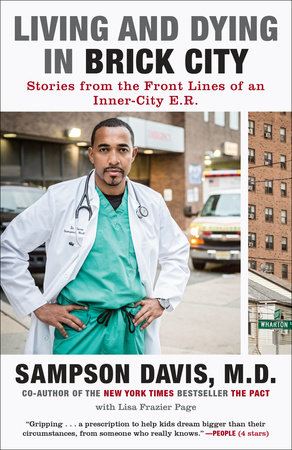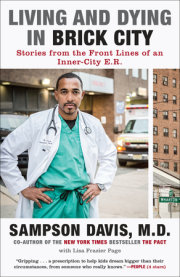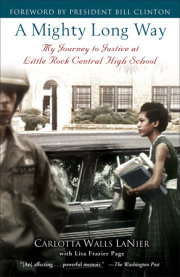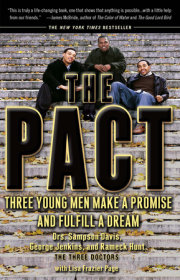1
BROTHERS
Brother, brother, brother
There’s far too many of you dying.…
—Marvin Gaye, 1971”
The name stopped me cold.
Don Moses. I knew a Don Moses. And I knew right away it had to be him.
I’d been in my residency for several months, but this was my first day on duty in the trauma unit at University Hospital, one of the training centers in Beth Israel’s network. I’d made it to the conference room early for the morning report, coffee cup in hand, my green scrubs and white lab coat spotless. The least I could do was look polished. There would be lots of gray hair and experience in the room, and I’d heard that these sessions could be brutal. Word was, the senior surgeons often challenged the medical actions taken the night before by their less-experienced colleagues, and they didn’t think twice about knocking an ill-prepared resident down to size. Fortunately for me, as a newbie I wasn’t on the hot seat. My plan was to lie low, watch, and learn. But I couldn’t take my eyes off the green chalkboard at the front of the room—and that name, in white chalk, crossed out, with a word written next to it in all caps: “DECEASED.”
Don Moses. It jumped out from the long list of patient names and data. The age seemed about right, thirty-one, just four years older than me. And he probably would have come to this hospital, since it was close to the old neighborhood. He’d been shot several times, had made it through surgery, and had been in the Surgical Intensive Care Unit. And then, that line through his name. My eyes froze there, my knees went weak, and I eased into my seat for the morning report. Suddenly, my cool began to melt. The cotton lab coat that I’d pulled on just moments earlier now felt like wool, and the once ice-cold conference room was starting to feel like a sauna.
Don Moses. We called him Snake. A decade had passed since I’d seen him dashing past me with the police on his heels one wild summer night. I’d lived across the street from the eight-story Dayton Street projects, one of Newark’s most notorious housing developments, and I hung out there practically every day. As a teenager, Snake had moved to the Seth Boyden projects, a short walk away. His fearless swagger and willingness to scrap with anybody who got in his way quickly earned him the respect of the toughest dudes around. The Dayton Street grammar school sat between the two housing projects, and from the time my friends and I were old enough to play outside alone, the schoolyard was our main hangout. We grew up playing hide-and-go-seek and shooting hoops there. Then, as teenagers, we’d sit on the concrete steps and pass the time listening to music, rapping, and talking about girls. I held a gun for the first time one summer night on that playground. I was seventeen. Snake, Duke, Manny, and I took turns passing around the cold, hard steel. It was Duke’s gun; he’d bought it off some kid on the street. Duke was the one who’d introduced us to Snake. Both were in their early twenties. The night Duke brought the gun to the yard, he and Snake took practice shots into the school’s metal door. Holding the nine-millimeter pistol was enough excitement for me. It just didn’t feel right blasting bullets through a schoolhouse door. But that night sealed our bond. The four of us became a team, with Manny and me as the eager-to-please little brothers.
We looked up to Snake. He was a mysterious dude, about five feet ten inches tall and two hundred pounds of solid muscle. He was smooth on his feet, although he moved through the neighborhood with a huge walking stick. His friends knew its real purpose: It would double as a whipping stick for the fools who dared to try to catch him off guard. He usually wore baseball caps to cover a patch of missing hair from a permanent scalp injury, which probably happened during a street fight. “Snake was always down to fight. But his allegiance was flighty at best. He’d scrap one-on-one against a neighborhood rival or battle with a group targeting another gang. But he’d sometimes do an about-face and attack guys I thought were his boys. You never knew what to expect from Snake or how far he would go. During battle, the dude seemed to have no emotions; he’d beat an opponent mercilessly, past the point where even a little bit of human empathy might have said, “That’s enough.” In that sense, he was a real warrior, and back then it felt good to be on Snake’s side. There was a fun part of him, too. He was the first to pull a prank or talk music and girls, but even then he never revealed much about himself. I sometimes saw him with his sister, but he never talked about his family or home life.
I don’t know whether Snake ever finished high school, but neither he nor Duke worked a real nine-to-five; they mostly hustled drugs and did odd jobs to keep cash and make themselves appear legitimate. The summer before my senior year in high school, the four of us were hanging out in the schoolyard one night as usual, when Duke came up with a moneymaking scheme to rob drug dealers. I knew it was wrong, but we wouldn’t be hurting anybody, I reasoned. They were just drug dealers. And something about the idea made me feel powerful and strong. At fifteen, Manny already had some prior arrests; he was game right away. Part of me was becoming as comfortable as my friends with this thug life, but there was another side of me, too.
As quiet as I’d kept it, I was also an honor student at University High School, where I’d become best friends with two other guys, Rameck and George. We’d ended up in some of the same classes and clicked right away because all three of us did well in school and still managed to be popular and cool. At the end of the previous school year, our junior year, George had talked Rameck and me into applying together to a scholarship program that would provide almost a full ride to college and medical school if we wanted to become doctors. None of us could have afforded college otherwise (even if the medical school part still seemed iffy for me), and so we’d taken the leap, sure of just one thing: Whatever we didn’t know we could figure out together. I hadn’t dared to mention any of those plans to Snake and the boys, though. They would have laughed me off the stoop: Marshall, going to college? Becoming a doctor? Who did I think I was? Some rich white dude or one of those Cosby kids on TV? Around my way, it was all about the here and now. Tomorrow wasn’t promised, and you did what you had to do today to survive.
For the moment, robbing drug dealers was the plan. What happened next seemed part of some bad dream—from us jumping out one night on the young Montclair drug boys to Snake and Duke brandishing the firepower to my patting down pockets and snatching jewelry and cash. All four of us had dressed in black to blend in with the darkness. We were just about to make our getaway when I noticed a brown four-door Chevy Citation pull up to the curb on the street in front of us. Two men in jeans and polo shirts shouted some questions about being lost. I moved discreetly toward the car and noticed a police radio on the floor. I immediately began backing away from the scene, yelling: “21 Jump! 21 Jump!” Undercover cops. We’d taken the code from the name of a popular television series.
Within seconds, we were practically surrounded by police cars. My ten-second jump-start helped me distance myself from the scene and appear more like a spectator. The police focused on my three friends. As Snake sprinted past me, his sweaty face glistening, his gold chain bouncing on his chest, he looked shocked and desperate. It had never occurred to us that we might get caught.
Keep your head straight, Sam, I told myself.
Keep walking. Don’t run just yet. Blend in with the surroundings. You’re seconds away from freedom. All three of my boys were arrested that night, and their loyalty ended there. Police found my ride, the would-be getaway car, at the scene and put out the word that they were coming for me. I turned myself in the next day. Because of their ages, Snake and Duke were taken to jail. Manny and I were transported to a juvenile detention center. To this day, I thank God that I was only seventeen and a half. If this had occurred a few months later, my future would have been a very different story. Since all three had serious priors, Snake was sentenced to seven years, Duke got five years, and Manny four. With just a misdemeanor shoplifting charge to my name, I got probation and, after four weeks in juvenile detention, another chance.
Copyright © 2013 by Sampson Davis, M.D.. All rights reserved. No part of this excerpt may be reproduced or reprinted without permission in writing from the publisher.








